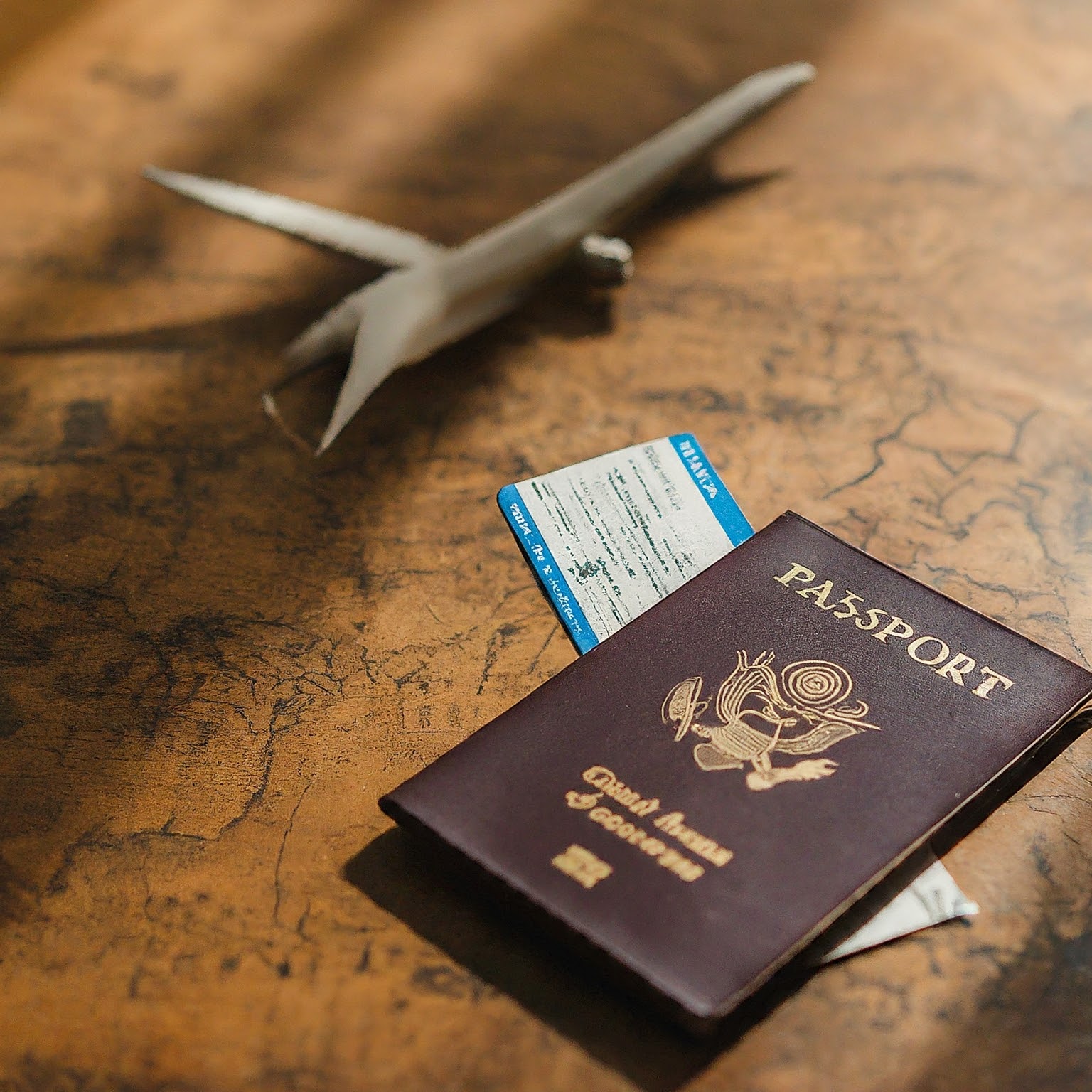Cozy Mode
What is immigration grief?
Your community-driven magazine, offering tips, services for home abroaders, and unforgettable experiences.


Grief happens every day. We grieve over losses, over things that didn’t come out the way we expected, over death, ending relationships, and more. It’s part of being human and unfortunately, most of the time it’s unavoidable, but the way we face it is up to us. In the case of immigrants, grief comes in unexpected ways. While many people portray moving to another country as a goal or a life achievement, not everyone talks about immigration grief. "Immigration grief" is a term used to describe the emotional and psychological challenges that individuals and families may face when relocating to a new country.


This experience encompasses a range of emotions and stressors associated with leaving one's home country and adapting to a foreign culture. Furthermore, this experience involves a sense of loss of identity in different senses. For example, individuals may face challenges of forging new connections in their chosen fields, adapting to a different work environment; navigating unfamiliar networks, establishing fresh relationships, and integrating into professional communities. The process of making new connections involves more than just updating a LinkedIn profile or attending networking events; it requires individuals to immerse themselves in their new professional surroundings.





The importance of recognizing and handling immigration grief when starting a new life




Other feelings that may arise are pain and guilt from leaving behind their loved ones “back home”; fear from the uncertainty as to whether the decision to move was a good one, to find a proper job, anger, and symptoms of depression might develop, intense sadness, lack of sleep, feelings of worthlessness, loss of self-esteem, anxiety, resentment, bitterness, and more. Other internal conflicts that contribute to emotional distress is feeling connected to both their home country and their new residence. Immigrants frequently find themselves straddling two distinct cultural worlds. On one hand, there's the deep-rooted cultural identity tied to their home country—the traditions, customs, and values instilled since childhood. On the other, there's the need to adapt and assimilate into the culture of their new residence. This duality can lead to a sense of cultural ambiguity and the challenge of reconciling conflicting cultural norms.


This delicate balance involves leveraging past experiences while demonstrating openness to learning and embracing novel approaches. Overcoming the fear of rejection or the imposter syndrome that can accompany starting anew requires resilience and a willingness to embrace uncertainty. These issues must be properly addressed by a mental health professional through a therapeutic process to help with the loss and intense change in an immigrant's life. Cultural adjustment, help to regain identity and the feeling of belonging will certainly take time, even years. Handling immigration grief often involves acknowledging and validating these emotions, seeking social support, accessing mental health resources, and actively engaging in the process of building a new life. Understanding and compassion from both the individual experiencing immigration grief and the surrounding community can play crucial roles in easing this transition.


Are you a
writer at heart?
As the great Mariska Veres once said, ♫ 'Send me a postcard, darling,' ♫
with any of your inquiries, and we will respond to you as soon as we can.
Share your overseas experiences with us

Based in Barcelona
info@twolander.com
(555) 123-4567
What is immigration grief?
What is immigration grief?
It's time to talk about the hard parts of moving to another country
Written by
Jean G. Fowler
Jean G. Fowler

Grief happens every day. We grieve over losses, over things that didn’t come out the way we expected, over death, ending relationships, and more. It’s part of being human and unfortunately, most of the time it’s unavoidable, but the way we face it is up to us. In the case of immigrants, grief comes in unexpected ways. While many people portray moving to another country as a goal or a life achievement, not everyone talks about immigration grief. "Immigration grief" is a term used to describe the emotional and psychological challenges that individuals and families may face when relocating to a new country.
This experience encompasses a range of emotions and stressors associated with leaving one's home country and adapting to a foreign culture. Furthermore, this experience involves a sense of loss of identity in different senses. For example, individuals may face challenges of forging new connections in their chosen fields, adapting to a different work environment; navigating unfamiliar networks, establishing fresh relationships, and integrating into professional communities. The process of making new connections involves more than just updating a LinkedIn profile or attending networking events; it requires individuals to immerse themselves in their new professional surroundings.



The importance of recognizing and handling immigration grief when starting a new life


Other feelings that may arise are pain and guilt from leaving behind their loved ones “back home”; fear from the uncertainty as to whether the decision to move was a good one, to find a proper job, anger, and symptoms of depression might develop, intense sadness, lack of sleep, feelings of worthlessness, loss of self-esteem, anxiety, resentment, bitterness, and more. Other internal conflicts that contribute to emotional distress is feeling connected to both their home country and their new residence. Immigrants frequently find themselves straddling two distinct cultural worlds. On one hand, there's the deep-rooted cultural identity tied to their home country—the traditions, customs, and values instilled since childhood. On the other, there's the need to adapt and assimilate into the culture of their new residence. This duality can lead to a sense of cultural ambiguity and the challenge of reconciling conflicting cultural norms.
This delicate balance involves leveraging past experiences while demonstrating openness to learning and embracing novel approaches. Overcoming the fear of rejection or the imposter syndrome that can accompany starting anew requires resilience and a willingness to embrace uncertainty. These issues must be properly addressed by a mental health professional through a therapeutic process to help with the loss and intense change in an immigrant's life. Cultural adjustment, help to regain identity and the feeling of belonging will certainly take time, even years. Handling immigration grief often involves acknowledging and validating these emotions, seeking social support, accessing mental health resources, and actively engaging in the process of building a new life. Understanding and compassion from both the individual experiencing immigration grief and the surrounding community can play crucial roles in easing this transition.
Are you a writer at heart?
Are you a writer at heart?
As the unforgettable Mariska Veres once sang, ♫ 'Send me a postcard, darling,' ♫ Send us your adventures, stories, or tips, and we'll get back to you as soon as we can.
As the unforgettable Mariska Veres once sang, ♫ 'Send me a postcard, darling,' ♫ Send us your adventures, stories, or tips, and we'll get back to you as soon as we can.
Share your overseas experiences with us
Share your overseas experiences with us


FOR YOU
More blogs that might interest you
More blogs that might interest you




Top Bubble Hotels in Mexico
Top Bubble Hotels in Mexico
Feb 10, 2025
Discover more




Top Coworking Spaces in Mexico City for Digital Nomads and Entrepreneurs
Top Coworking Spaces in Mexico City for Digital Nomads and Entrepreneurs
Feb 7, 2025
Discover more




Eastern Flavors: Trendy Asian Restaurants in Mexico City
Eastern Flavors: Trendy Asian Restaurants in Mexico City
Feb 5, 2025
Discover more